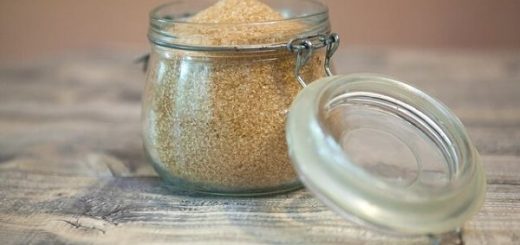Can you take too many vitamins

It is important that you get enough vitamins and minerals in your diet. That is why we often tell you on our blog to use enough fresh and unprocessed products. That is where those nutrients are the most. But is more always better when it comes to healthy eating? Can you take too many vitamins? Or can you also get too many vitamins or too many minerals? In this article we will tell you which nutrients can lead to surpluses. And of course we give you useful tips, so that you avoid problems!
What are vitamins and minerals?
First the basics: why are vitamins and minerals so healthy? In short, your body cannot function properly without these substances. For example, they ensure that you can make new skin cells. Or they keep your immune system going. Vitamins and minerals also have a lot of influence on, for example, your energy level, mood and hormones.
So important substances! And, just as importantly, your body cannot produce them on its own. So you have to get them out of dinner. If that is not done enough, you will run into a shortage.
Of course you want to prevent such a shortage. All of this has unpleasant consequences, such as fatigue, hair loss, a low resistance and other such problems. But that doesn’t mean you should just try to get as many vitamins and minerals as possible at all times! Too many vitamins and minerals are also not healthy.
Too many vitamins or minerals?
Many people turn to supplements when they are afraid of running a vitamin and mineral deficiency. That seems harmless, doesn’t it? A multivitamin here, some extra vitamin C there … That is only healthy, isn’t it?
The problem with supplements is that they often contain massive amounts of those nutrients. Up to several times the recommended daily amount, even.
One supplement (usually) stays neatly within the limits of what’s healthy. But do you use several? Then it may just be that they together exceed a healthy portion. And that is certainly not innocent.
Below we list when too many vitamins or too many minerals can be a problem. It is not dangerous for all substances. But as you can see, in some cases a surplus has very unpleasant consequences!
Too much vitamin A.
- RDA: 900 mcg for adult men and 700 mcg for adult women
- Too much: from 3000 mcg
An excess of vitamin A can cause serious problems. Common symptoms are headache, nausea and dizziness, and muscle pain. Your skin will also flake and you can lose it.
Too much vitamin A for pregnant women is downright dangerous. An excess of vitamin A during pregnancy increases the risk of abnormalities in the child.
Pregnant women should therefore avoid taking vitamin A supplements. Eating liver is also not recommended. It contains naturally an extremely high amount of vitamin A.
Too much vitamin B6
- RDA: 1.5 mg
- Too much: from 25 mg
Vitamin B6 plays an important role in regulating your nervous system. If you eat too much of it, your nerves are also the first to be damaged. Long-term surpluses of vitamin B6 can even cause permanent problems with the nervous system.
People who eat too much vitamin B6 also become extra sensitive to light stimuli. Sometimes your memory also deteriorates.
Vitamin B6 is the only vitamin that is known to be unhealthy in excess. As far as we know, you can eat almost unlimited amounts of other B vitamins. Your body then simply excretes the surplus.
Too much vitamin C.
- RDA: 75 mg
- Too much: from about 3000 mg?
Eating a lot of vitamin C makes little sense for your health. You just urinate what you don’t need.
That sounds very harmless, but there is a catch. Everything that you urinate must first be processed by your kidneys. And if you consume a lot of vitamin C, that means a considerable extra task for your kidneys.
If you eat too much of this vitamin for a long time, the kidneys can become overloaded by it. Unfortunately, it is not entirely known from what quantities that effect can occur. We do know that too much vitamin C from 3000 mg can have a laxative effect.
Too much vitamin D.
- RDA: approx. 10 mcg
- Too much: from 100 mcg
Vitamin D is often taken in supplements. This is therefore recommended, especially for the elderly and people with a dark skin color. They produce less vitamin D under the influence of the sun.
But… it is better not to go crazy with those supplements. Too much vitamin D causes calcium deposits in the body. This leads to nausea and a loss of appetite. You can also become sleepy and suffer from constipation.
In the long term, an excess of vitamin D causes damage to the heart, kidneys and blood vessels. So once too much is not that bad, but it becomes a problem if you take too many supplements for a longer period of time.
Too much vitamin E.
- RDA: 10 mg
- Too much: from 300 mg
You need vitamin E for the production of red blood cells and the maintenance of muscle tissues. But if you take in too much vitamin E, your blood vessels can be damaged. In extreme forms, this leads to spontaneous bleeding.
It is also possible that the accumulation of vitamin E in your body tissue can lead to problems. However, not much information is known about this. An excess of vitamin E is practically non-existent in practice.
Too much calcium
- RDA: 1 g
- Too much: from 2.5 g
As you probably know, calcium, also known as plain calcium, is essential for keeping your bones healthy. But if you consume too much calcium for a long time, you cannot get rid of all of it in your bones. It then accumulates elsewhere in your body.
For example, too much calcium can cause stones in your urinary tract. It can also lead to arteriosclerosis and calcium deposits in the kidneys.
Ironically, too much calcium can also make your bones weaker. Because of a surplus of calcium, you cannot absorb other minerals that well, which you also need to keep your bones healthy.
Too much iodine
- RDA: 150 mcg
- Too much: from 600 mcg
Iodine is a mineral that influences your thyroid gland, among other things. Too little iodine is a problem: then your thyroid gland works too slowly and you gain weight quickly, for example. But too much iodine is not healthy either. You then get the opposite problem.
A thyroid gland that works too fast due to an iodine surplus, causes your metabolism to go too fast. That means, among other things, that you lose weight quickly, even if you just keep eating a lot. Your hair can also fall out if you eat too much iodine, for example.
Too much copper
- RDA: 0.9 mg
- Too much: from 5 mg
Copper in larger amounts can have a harmful effect on various tissues in the body. This is mainly because copper irritates your mucous membranes. You can find them in all kinds of places in your digestive system, and copper can cause complaints in all those places.
Especially the mucous membranes in the intestines are sensitive to copper. If they get irritated, in the positive case you will get quite nauseous. If it is more serious, you can also vomit or suffer from diarrhea.
Eating too much copper for a long time can also damage your liver. That is because it has to process too much copper, which makes it too tired.
Too much sodium
- RDA: 0.5 g
- Too much: from 2.4 g
Sodium is the most important mineral in salt. This is a mineral that almost everyone gets too much of – but that doesn’t make it any less harmful!
The maximum healthy amount of sodium is 2.4 g. That equates to about 6 grams of salt. If you consume more, the main consequence is that your blood pressure rises. In the long term, this contributes to the development of cardiovascular disease!
Most people eat about one and a half times as much salt as ‘allowed’. This is due, for example, to the large amount of salt in ready-to-eat meals, snacks and other processed foods. Eating less salty food usually starts with cooking yourself more often.
Are Vitamin Supplements Healthy?
This all looks pretty foreboding. Does that mean that you should never take vitamin supplements again, so that you cannot get too many vitamins or too many minerals?
Fortunately, that is not so bad. Most vitamin supplements do little harm. They adhere properly to the maximum values given by the Nutrition Center. That way you don’t have to worry that you will end up with a surplus.
But combining multiple multivitamins is a more dangerous choice. Then they can add up to above the maximum!
So try to avoid this as much as possible. Do you still have to take multiple supplements for some reason? Then it is wise to check which vitamins are contained in both, and whether the doses are not too high. If you are unsure whether you are not taking too many vitamins or minerals, talk to your doctor if necessary!










